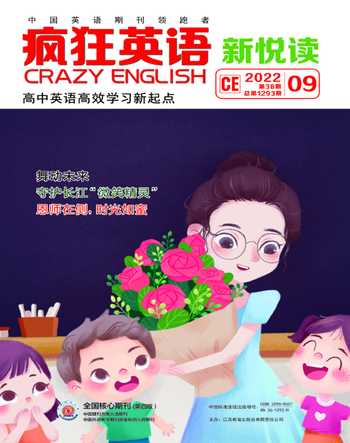“琴痴”巧手,乐器新“声”
江丽
陳恭是一位乐器专家,他在福州拥有四家私人乐器博物馆,馆藏近千件中外乐器,有些乐器甚为罕见。
1 Born in Fuzhou, Fujian Province, in 1946, Chen Gong has been collecting and repairing old instruments for decades.
2 He worked at an art school in Fuzhou in 1974, responsible for repairing more than 100 instruments. In 1990, Chen got a chance to pay academic visits to a number of countries. When he visited a village in Germany, famous for making instruments, he was impressed by the fact that some elderly people animatedly discussed aspects of an instrument. They were so excited that they seemed ready for their discussion to turn into a fight.
3 Chen found the world of instruments fascinating. He learned that, since repair and maintenance (保养) costs in foreign countries were very high, some damaged instruments were put aside without being fixed. As a result, he started to buy them, transporting them to his hometown to repair them himself.
4 A highlight of his collection is a Heintzman piano made in 1890. He regards the piano, which is made of rosewood and features exquisite (精致的) patterns, as a beauty from Europe. He bought it in Northern Ireland. He spent four hours repairing an accordion (手风琴) for free for the owner, who finally agreed to sell the piano to Chen.
5 He also collected a damaged coin piano that was made in London about 120 years ago. Once a coin is put in it, it automatically produces music. According to Chen, it could originally play 10 pieces of music, and now he has repaired it to the extent that it can play Beethoven s Ode to Joy.
6 Chen retired from the art school in 2006, but he continued to repair instruments and has opened four museums in Fuzhou. They have on display more than 1,000 instruments he has collected and repaired over the years and are open to the public for free, with the aim of promoting the culture of the instruments.
1. What s Chen Gong s job at the art school in Fuzhou?
A. Visiting foreign countries.
B. Fixing instruments.
C. Writing academic articles.
D. Teaching music lessons.
2. The underlined word “animatedly” in paragraph 2 can be replaced by .
A. angrily B. proudly
C. excitedly D. briefly
3. Why did Chen Gong take damaged instruments to his hometown to repair?
A. To get technical support.
B. To save costs.
C. To live more comfortably.
D. To share experience with relatives.
4. What can we learn about the Heint?鄄zman piano?
A. It was made of rosewood in 1890.
B. It was owned by an old man in Germany.
C. It could originally play 10 pieces of music.
D. It could produce music with a coin put in it.
Difficult sentence
He regards the piano, which is made of rosewood and features exquisite patterns, as a beauty from Europe. 他認为这架由红木制成、图案精美的钢琴是一种来自欧洲的美。
【点石成金】该句中,主句部分为He regards the piano as a beauty from Europe,中间的which引导一个非限制性定语从句,对先行词the piano进行补充说明。

